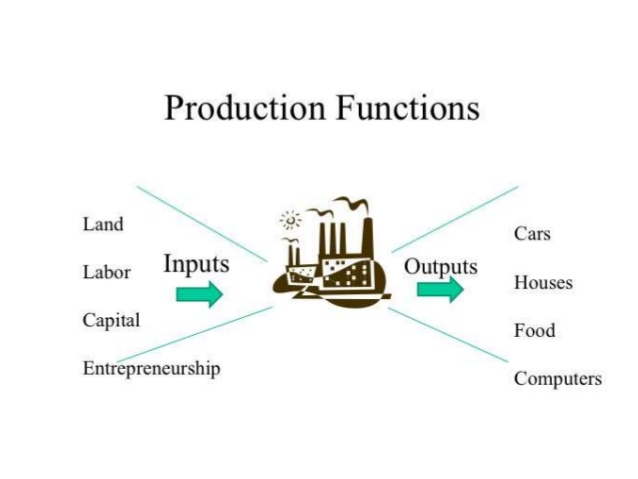Theory of production, in economics, an effort to explain the principles by which a business firm decides how much of each commodity that it sells (its “outputs” or “products”) it will produce, and how much of each kind of labor, raw material, fixed capital good, etc., that it employs (its “inputs” or “factors of production”) it will use.
The theory involves some of the most fundamental principles of economics. These include the relationship between the prices of commodities and the prices (or wages or rents) of the productive factors used to produce them and also the relationships between the prices of commodities and productive factors, on the one hand, and the quantities of these commodities and productive factors that are produced or used, on the other.
A firm’s objective is profit maximization. If, in the short run, its total output remains fixed (due to capacity constraints) and if it is a price-taker (i.e., cannot fix the price or change price on its own as in a purely competitive market) its total revenue will also remain fixed. Therefore, the only way to maximize profit is to minimize cost. Thus profit maximization and cost minimization are the two sides of the same coin.
Moreover, supply depends on the cost of production. The decision to supply an extra unit depends on the marginal cost of producing that unit. Perhaps the most important determinant of the firm’s price- output decision in any market is its cost of production.
The firm’s cost, in its turn, depends on two main factors: (1) the technical relationship between inputs and output (i.e., how outputs vary as inputs vary), and (2) factors price’s (i.e., the price of labour or the wage, the price of capital or the interest rate, etc.).
A business firm is a technical unit in which inputs are converted into the output for sale to consumers, other business firms and various government departments. In the theory of production, the concerns revolved around the nature of the conversion process, i.e., how inputs are converted into output. The key concept in the theory of production is the production function.

The production function shows the relation between input changes and output changes. It also shows the maximum amount of output that can be obtained by the firm from a fixed quantity of resources. The production function is expressed as:
Q = f (K, L, etc.)
Where Q is output (which is the dependent variable) and K and L are capital and labor inputs, respectively. We can think of other inputs as well, such as land. To make it simpler we assume here that the firm employs only two factors of production— labor and capital. The firm’s output is treated as a flow, i.e., so many units per period of time. The volume of output of the firm’s product, per period of time, depends on the quantities of these factors that are used by the firm.
For instance, now suppose that the firm wishes to increase its volume (rate) of output. This can be achieved by increasing the inputs of one or both factors of production. However, it is very easy to vary the quantity of labor in the production process. It can be done very quickly (in a week or a month). On the other hand, a fairly long period of time is required to vary the quantity of other factors, for example, change the quantity (or usage) of capital, e.g. to install a new machine.






